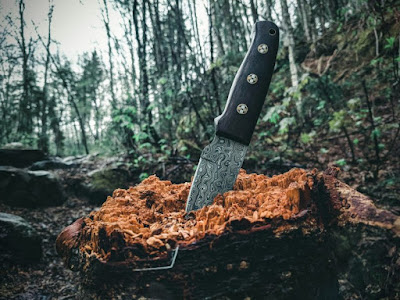Aside from lifespan issues, hunting knives should be taken care of so we can assure that they are fully functional once we bring them to the field. If you don’t know how to maintain your hunting knife, continue reading since these tips will surely be worth your while!
Why You Should Maintain Your Hunting Knife
Proper care for your hunting knife will extend its life, making it useful every open season. This involves storing your blade in the right place and keeping it sharp regularly. A sharp blade cuts easily, which will prevent you from accidentally cutting yourself by trying to force a dull blade.
Like any other hunting tool, a hunting knife is a great investment that demands proper care, so you can enjoy its many benefits for the years to come.
How to Maintain Your Hunting Knife
Ere are a few tips that could help you get the best out of your hunting knife
Proper Cleaning
Your knife is meant to be wet and dirty but making sure it’s clean and dry after use is the key to keeping it tidy. Here are the right steps to clean your hunting knife:
- Wash your knife with hot, soapy water. But if you have a carbon steel knife, it’s more advisable to use water and baking soda. Avoid strong substances to clean it.
- Then, use a non-scratchy soft cloth to dry it, making sure you don’t scrape the blade.
- If your knife contains strong stains, use a blend of salt and vinegar and rag to remove them. After that, clean the knife again with dish soap and water and dry it with a soft cloth
- Don’t touch the steel with your hands since the sweat from our hands can damage it. It contains ammonia, urea, and salt.
- Lastly, be prepared to store it in a clean and dry place.
Proper Storage
After cleaning your hunting knife, keep it in an area that is not humid and is free from other objects that may be against it. Do not store your knife in a scabbard. It is advised you store your knife in a thermoplastic acrylic-polyvinyl or nylon sheath. Cover it with paper for permanent storing and put it in a plastic bag with a zipper and some desiccant to keep it dry.
People who are experts in hunting with knives say that you should not use a leather scabbard to store your tool This is because the substances that have been used to tan the leather attract humidity from the atmosphere and rust a hunting knife even if it is oiled properly But don’t think that leather sheaths may not have any use because they are still effective in protecting you and the hunting knife while you are out hunting.
Proper Lubrication
Lubricating your knife is important to reduce friction. Use an all-purpose oil to keep it from getting rusty and to protect it from corrosion. But be careful not to overdo it.
Here are the right steps to take when lubricating your knife.
- Use a small amount of all-purpose oil to lube your hunting knife.
- Be careful of handling the knife as it can be slippery. You may use linseed oil to lubricate a wooden handle. Rubber handles don’t require oiling. Don’t forget the joints and other moving components.
- Rub the excess oil with a cleaning cloth.
Sharpening
It’s important to hone the blade to endure that they are sharp and crisp. Using a whetstone to sharpen your hunting knife is even more serious and professional way to make sure your knife is extra sharp.
Learn More:
Reference Link: https://primitivesurvivors.com/maintaining-your-hunting-knives/

No comments:
Post a Comment